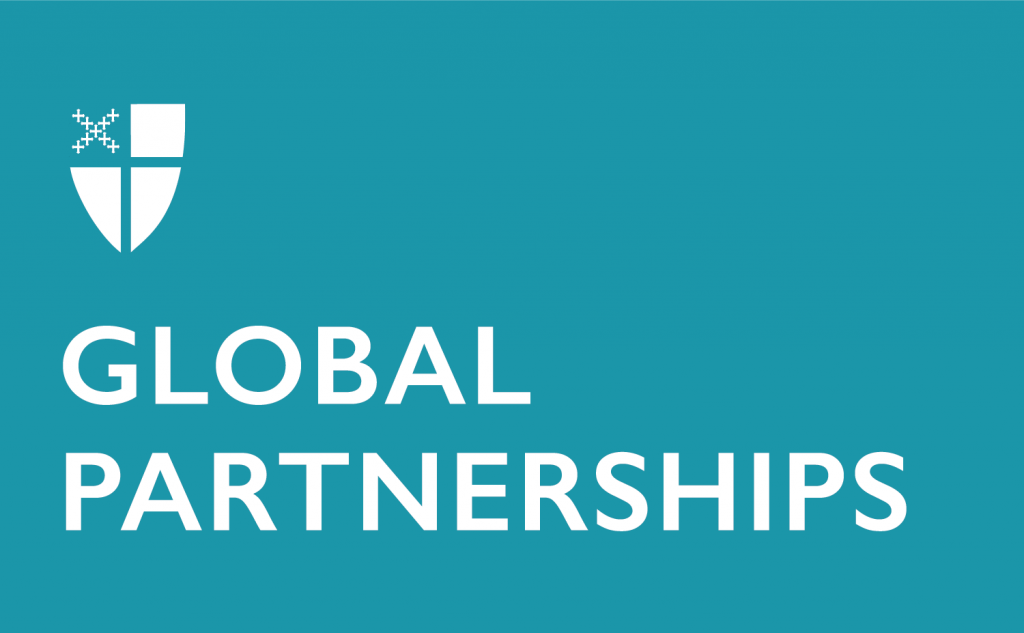Walking in Two Worlds: Nellie Adkins Advocates at the United Nations and Back Home
In commemoration of the International Day of the World’s Indigenous Peoples (August 9th), the Global Partnerships Office has been featuring a four-part interview with Nellie Adkins (Chickahominy, Diocese of Virginia), one of fourteen Anglican/Episcopal delegates who participated in the 11th session of the United Nations Permanent Forum on Indigenous Issues as part of the Anglican Communion’s delegation. The interview runs on this blog every Thursday, August 9th – 30th. Last week, Nellie talked about Presiding Bishop Katharine Jefferts Schori and the Office of Indigenous Ministries’ work with indigenous peoples in repudiating the Doctrine of Discovery, and their witness of presence at the Permanent Forum. Today, she discusses the progression of her role as an advocate both at the United Nations and back home.
We hope you will enjoy Part Three, and return next week to hear about the personal messages, wishes and dreams of other indigenous peoples that Nellie brought with her to the United Nations.
Global Partnerships: You’ve been at the UN Commission on the Status of Women before this on a few occasions. With each visit that you’ve had at the UN, whether it was for women’s issues or indigenous issues, do you see any kind of a progression either in your thinking around issues or the way in which you decide what to do with your time while you’re here?
Nellie Adkins:Yes, I do. I think, first of all, that on first encounter into any of the Forums here at the United Nations, it is daunting at best. There is so much going on… [The first time], I went home and when I recovered I was just like, “Was I in New York last week? Did I really do that?” But I thought, “OK, come on, you’ve got to get a handle on this, because it’s not about you, it’s about you representing your people, you representing your church, and you figuring out how you can best facilitate.” [The second time], I pretty much had both of my feet on the ground…I was more directed and I was more focused, by the grace of God. When I went home that time, I was able to go back to the reservation, share with my chief and our women’s councils. I actually [was able to make a difference back on our reservation]. The main reservation is surrounded on three sides by water. So it’s affected by two nuclear power plants right up river; we have indigenous plants, we have medicine plants, we have a fish hatchery, the pottery guild depends on the pottery in the river, the clay in the river, and if anything happens, then everything is kaput. And so I was sharing this with a friend of my husband’s brother, and he was like, “Did you know I work for FEMA?” And I’m like “No”, and he said “Well, that’s an issue. Do you know if the people are having any kind of person in their corner who’s bringing strategic planning in the event of a disaster or whatever happens that someone can be there and help?” And I said, “No, I don’t think we do.” Got him in touch with the chief, and now FEMA has come on board, and there is a program. And it was part of my learning advocacy here and learning about all of these conservation and enviro issues which I already knew about, but it’s like it puts a world perspective on these things. Because of being enabled to be here [at the United Nations] and learning that, I was able to take that home and then articulate it in such a way that now there are some programs coming for our tribe. I was so thrilled! Because that meant it worked. Maybe that wasn’t the original plan for me when I came here vis-à-vis the Episcopal Church, but I know that the Episcopal Church is in my corner. I know they have me here for such a time as this and for that reason.
GP: That is fabulous, to hear that you were able to take it back home and do concrete work around that. If you had to choose one thing that you feel the Episcopal Church has to share with the United Nations, what would it be? Not necessarily an issue per se, because the Episcopal Church has many important issues to bring [to the attention] of the United Nations. But is there anything particular that the Episcopal Church might bring to such a Forum?
NA: Power with balance. Vision with balance. Focus with balance. We look at Jesus Christ as our Lord and Savior and what he brought to the circle, and he always had balance. As fully God and fully man, he modeled that kind of serenity with strength and with power…and so by the empowerment of the Holy Spirit we have that same power available to us, and our mother church is the umbrella by which we are all availed of those things if we so desire. I am proud to be called an Episcopalian, I am proud to be native, fully traditional and fully Christian. There is no apology for the gospel…Jesus Christ is much more than a contemporary curse word. He is power and strength and the Church just brings him into the fullness and imbues him into everything that they do.

